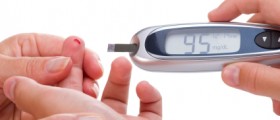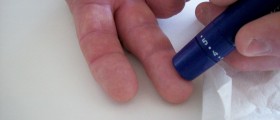Hi everyone, I have diabetes type 2 and now my doctor tells me that I have a hyperosmolar hyperglycemia state. I'm wondering if any of you out that could help in understanding how to go about managing this problem. I'm told this is a very serious condition and I need to take this seriously. I live alone and don't have anyone to keep an eye out on me nor do I have someone close to talk to. I was hoping someone out on the Internet could give me some pointers and a little companionship. I think if I had someone to share this with, I would feel a whole lot better. Any help would be appreciated. Thanks very much.
Loading...
Hyperglycemic hyperosmolar nonketotic syndrome (HHNS) occurs when you disease(diabetes) is completely out of control. In order to avoid this syndrome, you needed to check your sugar levels on a regularly basis and often. You need to check more often now. Talk with your doctor about your target blood sugar range. If your sugar levels get too high or too low, you'll need to call your doctor. Managing HHNS requires that you drink water every hour. You will need to set up a sick day plan with your doctor ahead of time. This is important so you're not scrambling around at the last moment when you need to go to the hospital.
Quite often individuals with HHNS, they are chronically ill and they often have a number of nutrient deficiencies. This includes potassium, phosphate, magnesium and B vitamins. These nutrients need to be restored during treatment. Individuals who have hyperosmolarity but have normal urien output and blood pressure may become oliguric (less urine production) and hypotensive (low blood pressure) after taking insulin. These individuals often end up with a latent dehydration shock. People with hyperosmolar hyperglycemia can lose up to 9 liters of fluid. Fluids and electrolytes have to be replenished. These patients also need to take vitamins in particular B-complex vitamins as they are in catabolic malnourishment. Thiamine or B1 is particularly important for HHNS.
Loading...
















